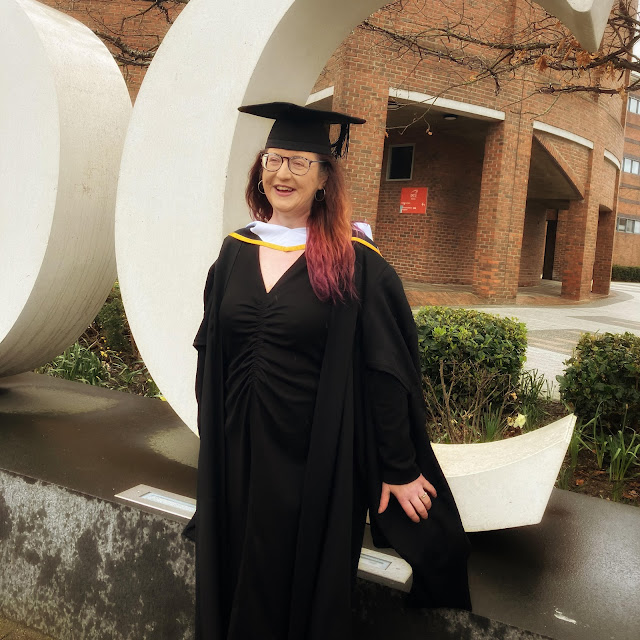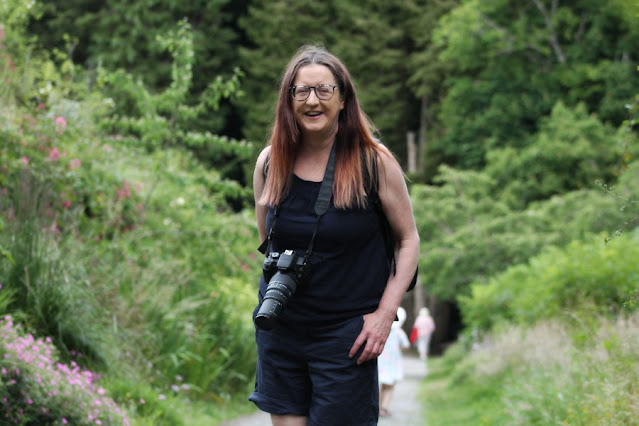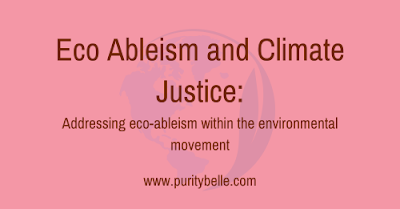Reflections on a Year Post Autism Diagnosis: Navigating a New Identity
I realised recently that it has been just over a year since getting my autism diagnosis and I had a lot of thoughts about this. It's been a year of ups and downs, of trying to find out who I actually am after a lifetime of autistic masking, and of trying to negotiate feelings and frustrations that I was unfamiliar with.
I was also finishing my Master's when I got my diagnosis so a lot of the processing of what the diagnosis meant was postponed till I could actually have some free brain space. I hit complete burnout which I wrote about here and interestingly, I was at an autism support group yesterday discussing burnout and the point was made that often the trigger for burnout is the realisation of how much our needs haven't been met and how autistic people are often classic people pleasers, so we can work way beyond our capacity much of the time. This was certainly true for me and I wrote in my burnout post about how I was basically functioning on adrenaline all the time and when the external pressures eased a little, I fully realised how deeply bad this was for me.
 |
| Me at graduation - at the end of two years of hard work and not knowing I was autistic, |
Being me, I completely threw myself into 'being autistic'. And what I mean when I say this, is that for me, information is everything. I have an endless need to know more, and to know every detail about whatever topic I'm interested in, so I think initially I didn't really understand on an emotional level what my diagnosis meant. What I did was abstract it, and read every article and blog post, engage with the autistic community on tiktok and generally create a 'project' out of it. I'm not saying this was a bad thing - it was a necessary thing for me. I did exactly the same when my youngest daughter was diagnosed with food allergies and when my eldest was diagnosed with Crohn's disease. Researching and informing myself makes me feel a little bit more in control I guess and it's something I need to do to cope.
However, the longer and more real process of accepting myself and truly understanding what it means to be autistic for me, has evolved over stages and over time and I don't doubt at all that it's a continually evolving process. Reflecting now though, on the year, and what it meant to me, I can honestly say that I've changed immensely, become a lot more self-accepting and generally feel happier and more balanced. And I suppose for those who wonder what the point of getting a diagnosis is, I can say that it gives understanding and knowledge and, for me, better tools to be fully myself.
It isn't all sunshine and roses though, there are many difficult components that come with diagnosis and of course this is all very dependent on the individual but I know that many late diagnosed autistic people describe a process of grief - grieving for the child who wasn't diagnosed and was misunderstood and possibly bullied or socially isolated and who didn't have the supports or understanding that might have made the trajectory of their lives a little different. This process of grief came very late for me and like many autistic people, I have alexithymia which is a difficulty in identifying emotions and relating them to what is happening in the present, so that adds an extra layer of complication I feel.
Unlearning masking is something that is still happening for me but what has helped is actually just asking myself 'why am I doing this?' or 'will I be comfortable in this situation?'. Pretty obvious you might think, but as a very high masking person, a lot of my life was based on scripts and what I 'should' do, with very little recognition of what I actually needed myself. So, shifting that has had to be a very conscious process and I'm a long way from getting it fully right in terms of self care, but I am a million times better than I was.
Some tangible things I have changed are:
- Letting myself physically stim - for me this is often swaying or shifting from foot to foot, or fiddling with hair ties.
- Accomodating myself in meetings (work or volunteer) by ensuring I take movement breaks.
- Being unapologetic for my communication style (and that includes reducing the internal criticism and second-guessing that I would have always done).
- Wearing my earphones or loop earplugs if there is too much noise.
- Saying no to situations that I know will be overwhelming from a social/sensory perspective.
- Not feeling guilty about resting and insisting on quiet time for me at home.
- If you can afford it and it's possible, get some therapy with an autistic therapist.
- Seek out support groups/organisations - AsIam in Ireland and Thriving Autistic are great.
- Be prepared for a rollercoaster of emotions - you may be elated one minute and then devastated the next, and none of it will seem to make sense.
- Be easy on yourself and don't expect to have all the answers straight away.
- Build on understanding what you actually need as an autistic person and an individual.






